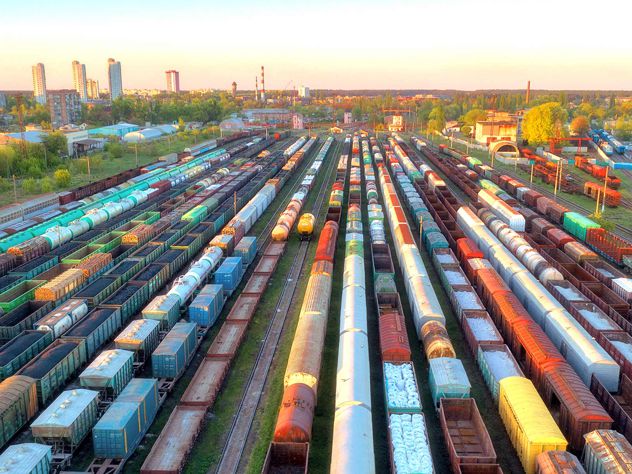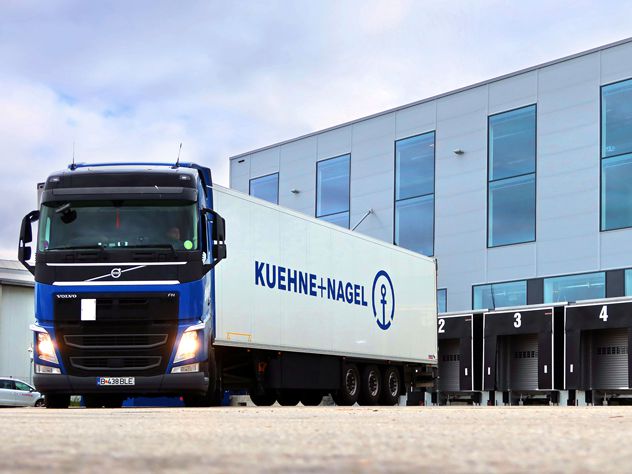What does this new future look like?
The Covid-19 pandemic clearly demonstrated that the traditional model was unable to deal with high levels of uncertainty. When accurate forecasting became close to impossible, supply chain managers were left to chase after real-time intelligence. This year's experience has highlighted that a very high level of transparency is needed to support on-the-spot decision-making that has become the new norm.
As a result the supply chain, often taken for granted in the pre-Covid era, has become a key strategic asset. It's no longer simply a matter for the backroom, but a key issue in the boardroom.
A skills-driven supply chain
However, this valuable resource, with all the new capabilities supply chain managers are demanding, has to be more than the sum of its technological parts. More than ever now, the supply chain needs the right people to make it deliver. It requires individuals who can assimilate huge amounts of information rapidly, with real-time problem-solving capabilities, and who can work effectively across silos.
This means big thinking, and it requires the right set of skills. Traditional supply chain management remains a core part of it. A solid end-to-end operational understanding of the supply chain, functional knowledge and market intelligence are as important a priority as ever. Understanding the process and related problems in detail, knowing exactly what your options are and having a sense of urgency and the ability to solve complex problems is a must. Since co-ordinating your efforts with others has become crucial, the ability to manage people effectively is now essential.
Analytical skills that can obtain insights and intelligence complement and improve service delivery. Knowing where and how to gather, explore, clean up, supplement and read out data makes it possible to detect patterns and extract intelligence. Engineering and implementing digital tools and algorithms turn this intelligence into targeted predictions that help supply chain teams to make better-informed decisions.
Another a highly valuable asset is the ability to design, implement and manage changes in the supply chain, whether involving physical actions, systems or workflow. Co-ordinating with suppliers, logistics partners and IT teams is a vital part of delivering on commitments.
In theory, these requirements call for a person with consummate analytical and functional skills, who is also a network engineer, as well as a project manager and a technological innovator. They must possess digital dexterity, and a 360-understanding of every component of a supply chain.
Supply chain orchestration
In practice, these skills are usually brought together not in a single person, but in a team that covers all the capabilities required. Such a skilled group can deliver results, with support from digital solutions to automate repetitive tasks, collate multiple data and prompt timely action.
This is where the team of specialists that underpins the control tower comes into its own - a combination of intellectual capability and practical expertise. You can compare it to the interaction of members of an orchestra performing a piece of music. Soloists and ensemble players with mastery of different instruments are called on by the conductor to provide their contributions at just the right moment to create a harmonious whole. Ensuring a supply chain delivers is not so different, drawing on the skills and disciplines available to compose comprehensive solutions and address issues as they arise.
For example, analytics might highlight a significant number of demurrage and detention events on shipments for a particular client. Additional work by data scientists could identify a number of incident hotspots. That’s where the partnership between our teams and our client organisations pays off. A fix could involve implementing predictive analytics to flag up issues ahead of the point when demurrage charges are incurred. Co-ordinated interaction ensures the supply chain operates as smoothly as possible and resolves the kind of problems that can never be planned out of existence.
Harnessing collaboration
Another example: Kuehne+Nagel worked with a longstanding client, a leading imaging solutions and technology group, to review its complete inbound supply chain, involving shipments all over the world. By identifying and evaluating areas for possible improvement, as well as any potential risks, we were able to lower costs by 17%, but also reduce lead times and the number of containers used, shrinking the client's carbon footprint.
Our 4PL team is able to deliver so effectively because we have the supply chain experts, engineers, project managers and innovators that the process requires. Comprehensive understanding can only come from collaboration, bringing together the skills needed for a common purpose.
We are convinced that the supply chain of the future will be shaped by partnership infrastructure, digital infrastructure and benchmark data, but especially by the collective talent we have at our disposal. Our 4PL capabilities, our shared expertise and resources, give us the capability to deliver sustainable value to your business.
Kuehne+Nagel Integrated Logistics: Orchestrating your success.








